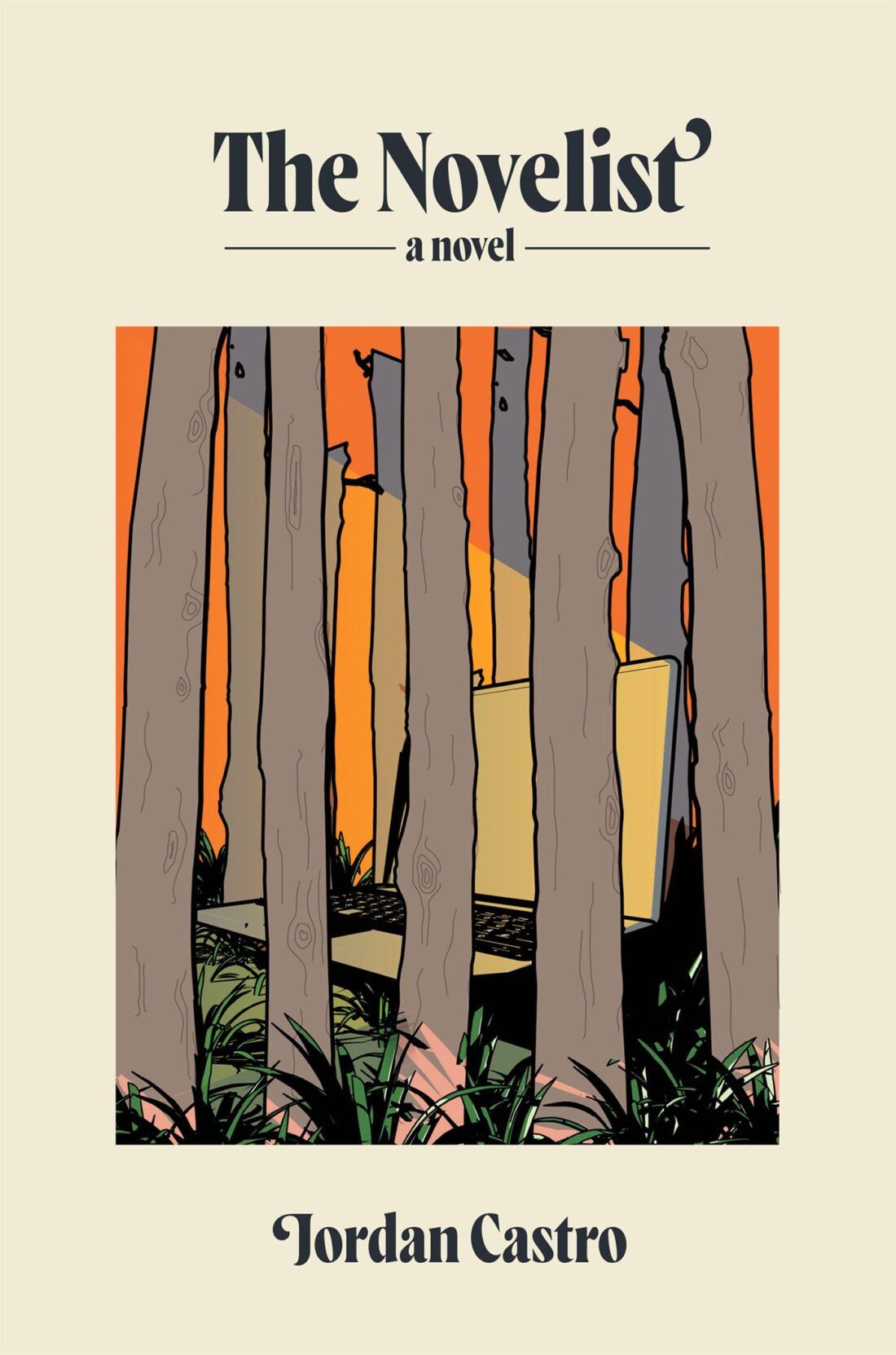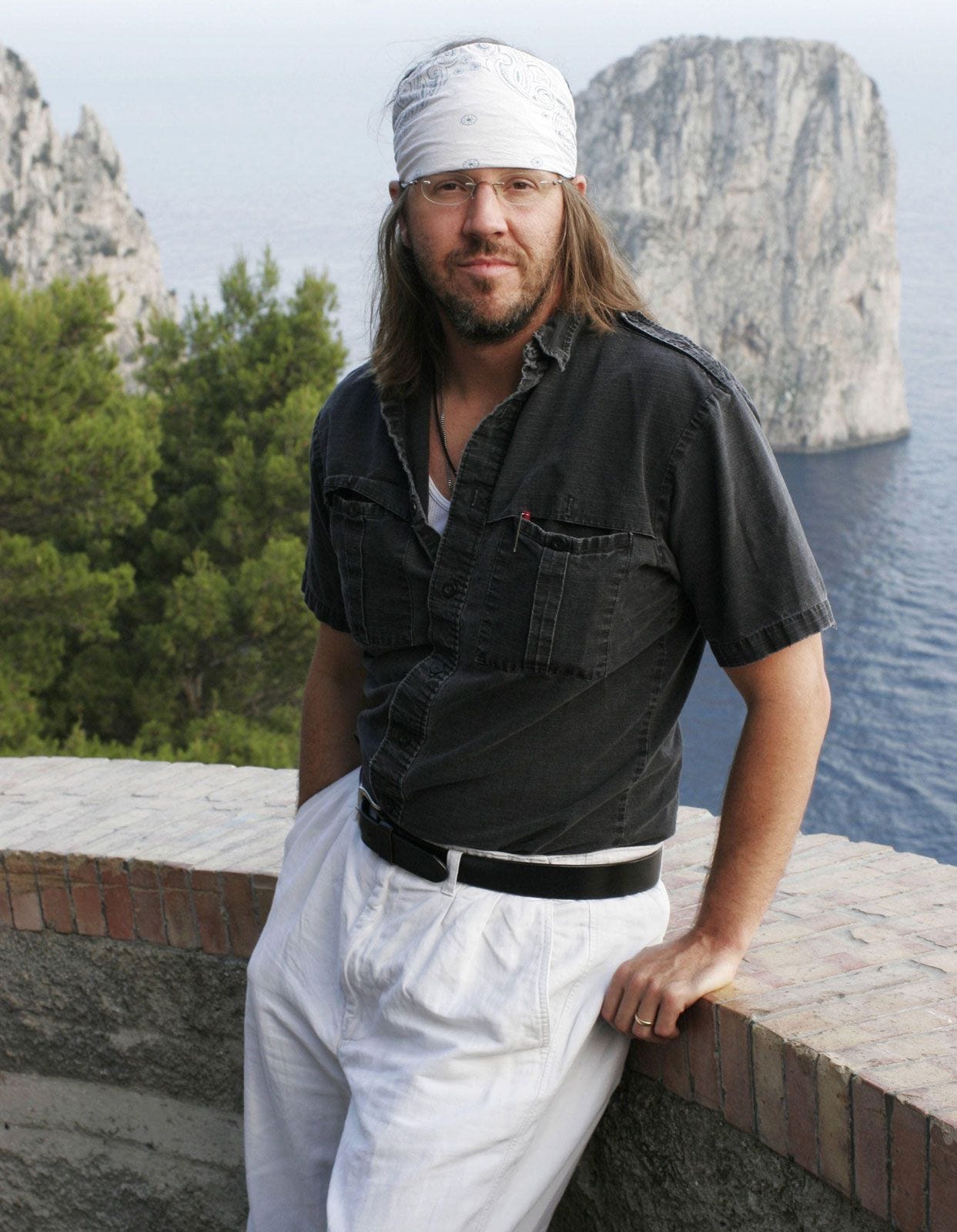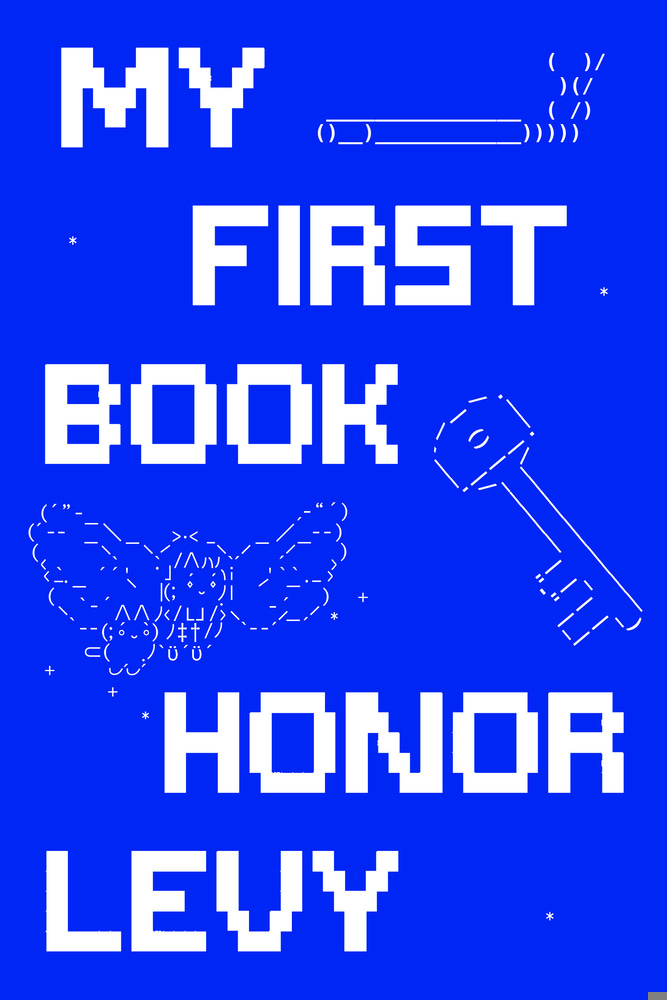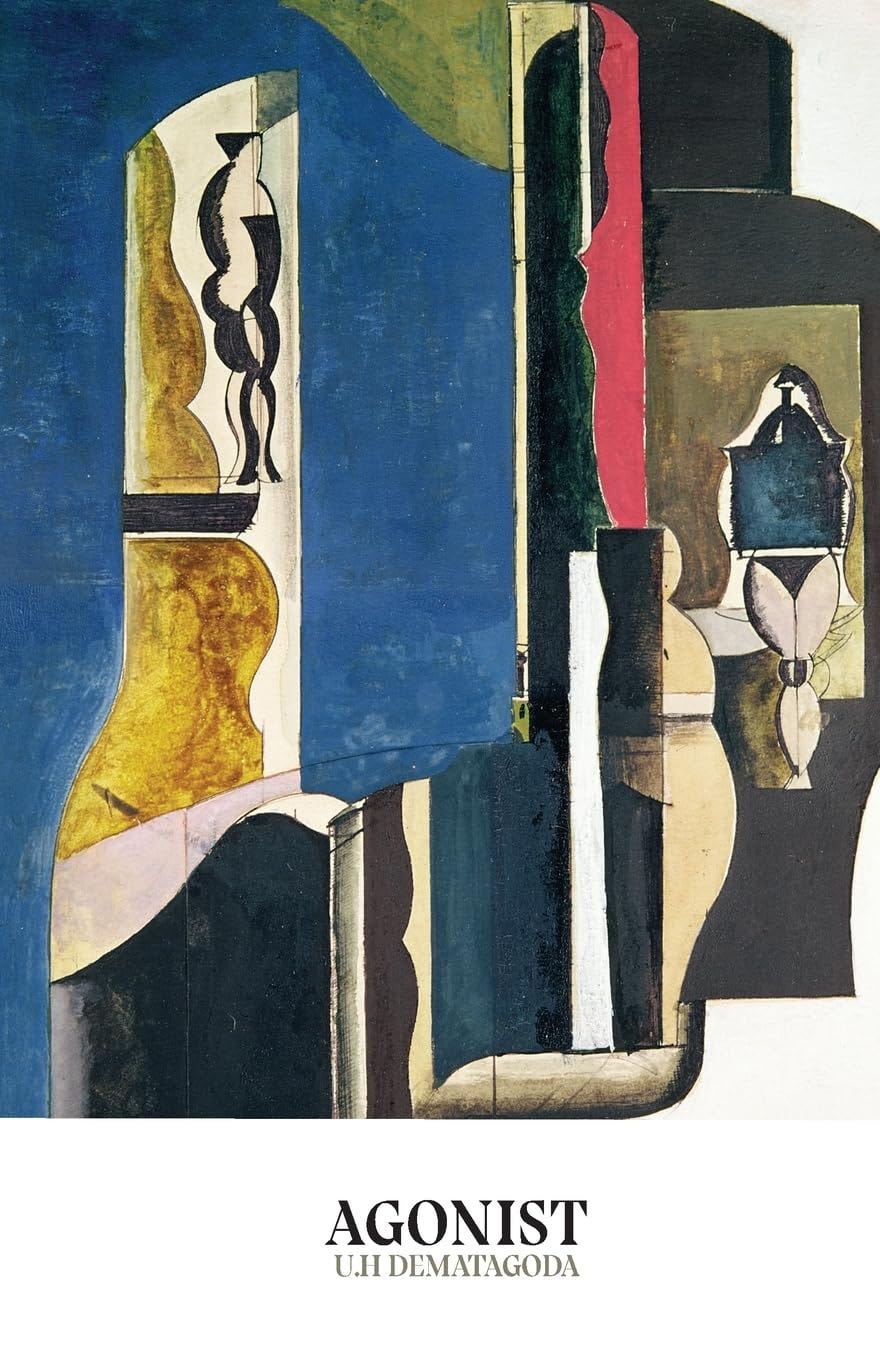Sincerity Cannot Save The Internet Novel
Honor Levy's "My First Book," Jordan Castro's "The Novelist," Udith Dematagoda's "Agonist"
The Internet Novel is a necessity. I’ll go further: as consciousness is not only the chief concern of literature but the well from which it is sprung — to the extent that literature’s progression from Homer to Joyce up to its post-war corporatization can be largely viewed as a progression of increasingly vivid renderings of the mind in real time— it is only logical that the Internet, with its unrecking mutations of consciousness mass and individual would be the foremost subject of novelists today. Still, the task of making compelling literature out of such online consciousness is no enviable one. As such literature is composed largely of the banalities that make up the bulk of our waking hours, it’s small wonder that until recently it’s been largely shirked by the main publishing houses and relegated to the adjoining canals of Alt-Lit. A type of mythologization of the soulless present has been a main objective of literature for over a century, but how much of modernism’s principal techniques can grant such dignity to lives spent predominantly on screens? Without ado:
THE NOVELIST - JORDAN CASTRO
I initially started this piece as a counter-manifesto to
Lit 2.01. In arguing for literature to embrace how online it is, he noted:Our lives are all terminally online. Yes I write a Substack and have Substack friends, but I have not officially been a member of the media since 2008. I am a billing coordinator for a hospital, I go to the gym as well as 12 step meetings. Yet I can honestly say at least half of my day is spent online.
My original retort to this was going to be something along the lines of “I spend at least a quarter of my workday on the shitter, should I write a book about that?” But alas, Jordan Castro seems to have anticipated this argument, putting his titular novelist on the toilet for a quarter of the book’s length as he scrolls Twitter and describes his bowel movements in graphic detail. I fault this book for many things, but lack of realism isn’t one of them. Most of the book is just interior monologue spurred by things our narrator sees on social media. A good example is the one left in this glowing review from Wired:
“Moving quickly, almost frantically, as though trying to complete an urgent task, I navigated back to Ashley’s profile and clicked her header photo: a group of wealthy-looking small women and thick men, all white, wearing dresses and high heels or blazers and partially unbuttoned button-ups, standing crammed together on a roof, a skyline I didn’t recognize behind them. I did, however, recognize some of the people in the picture. At least I thought I did—when I moved the cursor over their faces and bodies, the names that appeared were unrecognizable to me,” the narrator thinks, before daydreaming about what these people he may or may not know may or may not be like. “I imagined arguing about racism with one of the thick men in the picture,” he continues, poring over Ashley’s social milieu like an amateur sleuth.
In better hands, the line “I imagined arguing about racism with one of the thick men in the picture” would have been the passage’s setup, but here, it’s the culmination. We can be charitable and interpret this not as some gelded attempt at social satire but a Knausgaardian exploration of the mundane, but Castro doesn’t have the vision or diction to accomplish the latter any more than he has the insight or wit to accomplish the former. Aside from one of the novel’s few genuinely humorous moments, when an anti-natalist tweet from an old friend sends the narrator down an obsessive spiral and he decides to make his book a biography about him, there’s little to redeem it. Even the Red Scare girls, devoting an hour to the book with Castro as their guest, didn’t seem to remember much about the novel other than the prolonged pooping sequence. Perhaps it’s because it’s the novel’s one offensive moment, but even that, coupled with the banal milquetoast thoughts of the narrator, seems not so offensive in the transgressive sense but in the numbing way a passing patron at Whole Foods might prattle about gut health. Nevertheless, they managed to compliment him on the one virtue most exalted in the New York literary scene:
Can you guess what it is?
A NOTE ON SINCERITY
Foster-Wallace is an easy scapegoat for the excess of earnestness plaguing much of the 21st century’s output. I don’t blame this man one bit for his call for artists to shrug off the ironist’s jeer was mistaken by so many to mean art must necessarily be confessional. Perhaps he focused a little much on postmodernism’s tonality, but let’s remember he wrote New Sincerity’s founding document in the 1980s before the Internet amplified irony to what it is today. In it, there’s an anecdote of his professor advising against the use of low culture images which might date a work (allusions to brands, TV commercials, pop culture). This professor had seemingly come of age before the color television became a household fixture, and for him, was less integral to fundamental reality than for his students. The parallels of the professor’s relationship to TV and mass consumer culture and those of us brought up before the time of social media are obvious enough that I won’t address them here, but this was that anecdote that shut down my original thesis on Internet novels2. If one generation’s surrealist low cultural image becomes the next one’s fixed reality, it is only natural for the novel to represent this.
Still let’s acknowledge what has changed in the third of a century since his essay was published. For one, the postmodern marriage between high and low culture has long been dissolved, with low culture having been granted all assets and full custody. The deployment of low cultural images is no longer a potent means of critiquing the vapidity of U.S. culture as it’s been used tirelessly in all media formats to retain realism and an ever-elusive sense of relevancy to younger audiences for most our lifetimes. My sense, however, is that this isn’t the goal of internet novels. For one, the internet is well aware of its own vapid culture. If anything, these books seem to want to dissolve the border between real life and the online world, treating the latter with the same mythic reverence we might bestow pre-modern settings as if by change of tonality, a Twitter argument thread concerning trad wives and E-Girls might be as profoundly significant as Achilles releasing the body of Hector. Online narratives are uncompelling for the same reasons as online life; in the digital space you can’t fight with your fists, can’t pass a knowing glance, can’t fuck, mourn, feast, kiss, wed, touch, feel the terror of darkening forests, the sublimity of towering mountains, the purgatorial malaise of suburban strip malls. But forget about the physical. When what is perhaps most limited by the internet, and essential to literature above all, is the free reign of consciousness itself. Websites and algorithms are designed to manipulate consciousness, mood, connection, narrative, desire, worldview, and all of us are less immune to its designs than we’d like to think3. The books I cover here are all aware of this to some degree, but what can they do with it?
MY FIRST BOOK - HONOR LEVY
Honor Levy’s first book has probably had more reviews on Substack at this point than Amazon. I don’t mind assisting one last push to the stalling hype/controversy train by writing another one; even with her more annoying affects, I find her to be a fairly likeable figure and would love to see her displace some of the old (millennial/MFA) guard and blossom into a relevant figure in the larger culture.
The first entry in this collection made this book the target of much (intended) hate, but as others have already noted, it’s the collection’s strongest piece. Though it appears at first as a simple deluge of deeply online cultural references, Levy makes ample use of metonymy, rhyme, anaphora, onomatopoeia, and various other devices. Her childlike exuberance shines here, and her rhythmic ability shows promise of future potential should her connections land her another book deal. These highs are infrequent, however. What dampens much of My First Book is not, as what others have suggested, a result of her overusing the same bag of tricks — Levy is at her best when she’s at her most weird — but rather when she lets the mask off: grasping for a story’s beating heart coming up empty every time. It’s all very sincere; mercilessly, self-consciously sincere, but never moving, never revelatory. It’s a confessional book with nothing to confess. This might have worked better had she learned to inhabit a more fictional world or the mind of a character less like herself and short of that, a few more years of living. As it is, My First Book would have been stronger had she cut it in half and just stuck to making various allusions to 4chan. Instead we have passages such as:
“It’s lent as Little Coward must be patient and remember that godspeed has nothing to do with Adderall and everything to do with the success of sustaining it all. Everybody hurts. After the arcade, now I’m the coward just doing it. Now that I’m just doing it, I’m winning, and I’m losing. It’s the best of times. It’s the worst of times. It’s the age of wisdom. It’s the age of foolishness…
And yes, that Dickens quote goes on, despite never connecting to the narrative or any larger idea.
I find it crass when a reviewer dwells too much on an author’s real-life persona, so I won’t do it too much here. It’s worth mentioning, however, the frequency which Levy mentions David Foster Wallace and New Sincerity — in her old podcast, as a guest on others, in the story with the above passage, her blurbs for the works of her peers — only because it places her (and probably most of Dimes Square) directly in Foster Wallace’s lineage. Granted, there are far worse lineages to be in. Yet even the bandana man himself might make an allowance for a wavering in earnestness with lines such as:
“You are like Sonic the Hedgehog, running so fast you know only darkness.”
What we have here is sincerity hitting a brick wall.
AGONIST - U.H. DEMATAGODA
At first glimpse, this book appears to be as much of a “touch grass” narrative as anything by Jonathan Haidt, if more eloquent. The logline seems to imply so:
I have endured this torture wheel, drank of its poison, consumed all of its sins, and vomited them upon the page.
It then begins with what has to be the most boldly expressionistic prelude I’ve read from any book this decade, which includes this majestically virulent sentence:
But the terror remains despite the unremitting chatter it is the terror of the void hastened by a unique reflexivity that remains unchanged a reflection upon mortality which years for some totalising nomos, some recondite mythology to act against nature, against time, against the void, which screams out in banshee tongues, among all of this clutter, these ‘things’ and their repulsive familiarity.
Sadly, the strength of the prelude is only topped by its nearly Joycean one page epilogue, though if that weren’t the case this would be a far different book than what Mr. Dematagoda intended to write, which is essentially the Internet Novel taken to its extreme minus the pretense of sincerity (and all the better for it). Much of this book does away with characters or even a single narrator, rather taking the form of disembodied quotes by various fringe ideology groups across extremist factions online. It even does away with setting: whether it all takes place in forums, comment sections, or chat rooms is also left unknown. Those details are irrelevant here. Feminists, Communists, and the Dissident right are depicted, maybe even caricaturized, though to call this work a satire is to miss the point. Yes, the above discussed low cultural images are used frequently here, less in the form of pop culture references and more in the use of coded language and ideology signifiers of the hyper online:
Your life is based on getting zero pussy, more like.
On a long enough timeline…we’ll all become libtards.
This is in fact much of the type of irony Foster Wallace warned against, and the book occasionally has difficulty untangling itself from the ironic nihilism of its subjects, but what it does very well for most its length is turn these disparate immaterial voices into a kind of hellish choir that creates a sense of dread most horror novels wish they could induce. Dematagoda has done something far more impressive than pushing the ironic into the sincere, he has pushed it into the gothic.
Not content with scaring his audience off of their phones and into nature with their loved ones. The final sections questions how much a mind is in permanent disrepair from the lingering effects of the digital age. I’m not going to spoil it, mostly because it’s the most experimental bit in the novel and I couldn’t say for certain what all was happening, though if I had to guess, neither did our narrator. Here we have a stock trader meeting his coworker and courting a woman, some intern, I guess? Front and center of the text are things like mitigation strategies and various articles our narrator has read online, while much of the things happening in the real world are all through unattributed dialogue free of any physical description. It is as though nothing in the character’s physical surroundings is reaching his interiority. The result is a superbly impressionistic effect of being interrupted while absorbed in something online, and the voices at the dinner table barely register as your mind is still in the void. This whole section, with its stock market subject, could have easily taken place in the 1980s. It suggests a society that has ruptured human connectedness long before the internet, and so is it any wonder these online agonists have retreated to the void of their phones?
Whether the novel’s intent was not dissimilar to more mainstream ones attempting to dignify the world online, and it is just hidden better through its avant-garde obfuscations, I could not say. This a densely experimental book and would take more than one read to uncover all of its meanings, let alone its intent. And yet, it doesn’t seem quite so desperate to say something as the other texts mentioned in this article despite saying quite a bit. Is this the ideal form of the Internet Novel? It might be the most honest. But like most experimental novels, I would not point to it as the model to follow. It stands much better alone.
THE SEARCH FOR A FORM
So what form can an affecting Internet Novel take? For my money, a good Systems Novel might make for a better a model than New Sincerity. Even stream of consciousness style from early in the 20th century would be less than compelling with a mind that spends so much time online. To say otherwise is to say imagine Mrs. Dalloway writing some Cuskian divorce memoir, Quentin Compson posting memes about returning to tradition4, or Ishmael documenting his digital nomad journey on Instagram, and thinking that it would all make for great literature.
I think the majority of people can just go the Sally Rooney route, throw in a few text conversations to remind the reader we’re in the 21st century, and call it a day. No need for any true Internet Novel. Someone may figure it out, and if they do, it will be a novel that liberates us from our algorithmically trained thinking rather than leaning into it. It will mystify as much as inform, bringing a sense of magic long lost from our excessively deconstructed and politically charged self-narratives. Can it be done? Who knows. Only so much of a life staring at screens can really be mythologized and that’s a problem that goes well beyond the state of literature. So, while I reaffirm that the Internet novel is a necessity, it’s the same type of necessity as a colonoscopy. One which I hope to avoid in the future.
Before I read the David Foster Wallace essay “E Unibus Pluram: Television and U.S. Fiction”: a main text behind the movement I intended to critique.
Which was essentially that they’re bad and people should stop writing them.
How else do the allegedly great thinkers all form a single Twitter monoculture in the 2010s?
Oh I can see him just as well having gone the other way in the current era: his moralism, discontent with his region’s troubling history, and fierce defense for female honor would have made him a great center left feminist. Still, his lack of careerism and willingness to be outcast from society along with his sister (claiming incest even in pursuit of that outcome) all to protect an antiquarian notion of honor makes me think his modern-day equivalent would long for the mythic trad life: living off the land with his sister wife and six babies.






This is the first Substack essay I've come across in a long time that reaches well beyond the dullness of internet thought and language.
I think you're right about the Sally Rooney route. This is what movies do. Movies have to deal with this because the internet (phones and screens) has made much of our lives unfilmable. The camera used to have access to all our drama and experience... now we've gone where it can't follow.